|
The loss of a beloved pet can be the deepest heartbreak of our lives. With each article, we will address and answer a key topic with Certified Pet Grief Counselor, Pina De Rosa (APLB / AAVSB). If you wish to send in questions for Pina, please submit them to Pina De Rosa through www.PetBereavementCounseling.com In our last topic on Pet Grief Counseling, we addressed two holiday-related questions that I was asked recently. About dressing up pets in Halloween costumes: “What are your reflections and opinions about pet owners dressing up their animals? Is there any possible problem or potential danger in this behavior?” As well as how to counsel a pet parent who will not euthanize a terminally ill and suffering pet, because of Judeo-Christian religious reasons? With this topic, we get to look at why is it important for the bereft pet parent to be made aware of and understand the stages of bereavement? What is the difference between denial and disbelief? What about closure vs. resolution? It is important for the bereft pet parent to be made aware of and understand the stages of bereavement as it can support the newly bereft pet-owner in understanding that such overwhelmingly sorrowful emotions are to be expected. When a huge stable part of the pet parent daily life is abruptly ripped out, they are in a deep emotional state of shock. Often times they are not equipped to cope with their pet’s death. Even if they prepare themselves, they are rarely ready. It is helpful for the pet parent to understand that such overwhelming experience with grief and loss is something that most people experience when coping with a deep heart-wrenching loss. The length of grief is unpredictable, from a few days to a few weeks, or even longer. Understanding this, and the phases of mourning, can lessen any fear they may feel from such emotional trauma. The heartbreak they feel is so tragic, they may feel they need to endure it to no end. Understanding that the overpowering emotions they are feeling are normal can serve as a road map of the path ahead. People are often afraid of death, which can cause them to be afraid of feeling such unbearable new emotions. If they do not allow themselves to feel their true feelings, they end up causing even more psychological harm to themselves. It is beneficial to their healing process to know that the initial shock, denial and disbelief they feel are absolutely normal. And that letting out their tears is not a weakness, but a necessary part of healing. It is important to reassure them that vacillating between anger, alienation and distancing is a normal temporary response to the suffering they feel. It is often too hard for the bereft pet-owner to comprehend such loss. Letting them know that these stages are all normal during mourning, and that they are non-sequential, will help them cope with the vast scope of emotions. They may feel they are losing it, they are likely to feel guilt, and even experience some degrees of depression before they the get to a place of spiritual and emotional healing. Addressing them with understanding and compassion will help the bereaver make the journey towards that healing and resolution. It’s important to remember that as Megan Devine puts it best in her most excellent book “It’s ok you’re not ok – meeting grief and loss in a culture that doesn’t understand”, grief is not a problem that needs a solution, it is an experience that needs support. Her book, along with Dr. Wallace Sife’s book “The loss of a pet – a guide to coping with the grieving process when a pet dies” are both truly excellent sources of support. They also make wonderfully thoughtful gifts for our friends when their pets pass. It is also very important to note that at the beginning of the grieving experience, there is a difference between denial and disbelief. Each can affect a bereaving pet parent as follows. Denial and disbelief are two separate responses to the initial shock of the death of a dearly beloved pet. Denial is a mental reaction that occurs when the mind categorically refuses to accept something too painful to bear. It is a temporary psychological reaction that unconsciously switches off reality when the facts are too upsetting to accept. Disbelief is a conscious doubt to admit the fact that the pet has died. The client does not like that truth, is often stunned by it, and finds it most challenging to process it. Disbelief is always the first one to occur, followed by denial. Both are normal initial stages of mourning. Denial and disbelief usually are the briefest of all the stages of grief, both necessary to the process of grieving and healing. The difference between denial and disbelief is the following. Denial functions as an unconscious circuit breaker that is triggered when the stress is too extreme for the mind to bear. When a client is in denial they are in a fantasy that the pet is not really dead. They refuse to admit it. During disbelief, the client recognizes the truth, yet a part of them still does not want to embrace it nor believe it. When the client is in disbelief, they feel in a daze as the truth has not yet sunk in. Denial is a protective fantasy that shields the client from the initial shock. During denial the client not only avoids acknowledging their beloved pet’s death, but they also passionately hope and wish for their return. Fueled by that hope, they may sometimes “bargain” with God and they might even contact pet psychic. Once the initial shock subsides, and once the reality sets in, so does the pain. With the death of a pet there is no “closure” rather there is “resolution”. This is how we can help the bereft pet parent to work toward this stage? Resolution is the final stage of bereavement. It is the time when the client gets to keep the memory of their beloved companion, while being able to let go of the sharp pain and anguish they have been experiencing until now. It is when they learn to live with the pain of the loss. Resolution is the time when the client is able to shift from feeling like a victim to honoring their pet’s precious brief life. Those heartwarming memories allow the bereaver to experience a new depth of love for their special companion. We now use this term instead of “closure” because, in psychology, “closure” is usually related to finding a solution to a problem. That is not a good choice when applied in reference to the loss of a dear one. The concept of “closing” is utterly intolerable to an anguished pet-owner who has just lost their special companion. When the bereft client feels threatened by anything that might invalidate what they are going through, they are likely to close off and even walk away. Those are reasons why we use the term “resolution” instead of “closure”. We help the pet parents work toward this last stage by supporting them in realizing that they can be celebrants of their special companions’ lives. We help them also by reassuring them that it is normal that they will feel some of that pain in the future - even at seemingly random times. Like waves of the ocean that come and go, it is expected they will tear up again and again as they heal and continue their lives. There will not be a day that they do not miss their beloved companion. The grief counseling with a pet bereavement counselor will support them with healthy coping skills so that they learn to live with that hole in their heart, with the love and the loss finding a way to co-exist.
1 Comment
The loss of a beloved pet can be the deepest heartbreak of our lives. With each article, we will address and answer a key topic with Certified Pet Grief Counselor, Pina De Rosa (APLB / AAVSB). If you wish to send in questions for Pina, please submit them to Pina De Rosa through www.PetBereavementCounseling.com In our last topic on Pet Grief Counseling, we looked at “anticipatory grief”. With this topic, as the holidays are around the corner, we will address two questions that I was asked recently. About dressing up pets in Halloween costumes: “What are your reflections and opinions about pet owners dressing up their animals? Is there any possible problem or potential danger in this behavior?” My reflections and opinions about pet owners dressing up their animals is that if it is a once off special occasion like a fun Halloween costume, or a few cute moments with a Santa hat for a holiday photo, it can be quite sweet. If it is enjoyable for all (including for the pet), then there would not be much reason for concern. There are times when pet owners take care of their animals by dressing them up for warm weather or for rain protection, or even putting on a vest in the case of a service animal. In my opinion those are quite normal circumstances. That said, it is a distorted situation when the pet is dressed up in various costumes for multiple occasions, or even receives baby toys and gets carried around in a baby stroller (even though the pet is not disabled). It becomes quite strange when a pet owner relates to the animal the way we would relate to a human baby, and transfers any potential unmet nurturing needs to that pet. If this conduct is ongoing, it can become a significant issue and such pathology would then warrant appropriate professional help. That is an unhealthy fantasy. Sometimes the owner is aware of it, often times they are not. In such instances, there is quite definitely a possible problem or even potential danger. This type of behavior is a conscious (or sometimes unconscious) redirection of the feelings that a parent would have for a child. This would then quite often lead the owner to experience and express a heightened responsibility for the animal. In extreme cases, such as when the animal is pushed around in a stroller, then it is not only strange, but it can actually deprive the pet of living its true animal nature which is considered a form of abuse. Once that pet passes, the grief counseling for the pet owner will likely need to be referred for a longer and deeper therapy or psychotherapy. About religion: “How would you counsel a person who will not euthanize a terminally ill and suffering pet, because of Judeo-Christian religious reasons? Without criticizing their beliefs, how would you deal with a friend who thinks only God has any right to take a pet’s life? Some of our friends want our help, but they will accept only what they see as legitimate scriptural justification.” How I would counsel a person who will not euthanize a terminally ill and suffering pet, because of Judeo-Christian religious reasons is the following. Aware that a counselor’s “logical” approach will not be effective with someone who is deeply religious, I would bring up compelling religious references such as the biblical thought of “Man is God’s appointed steward of all living things.” Because some clients rely on their severe religious beliefs, they will decline having their pets euthanized, erroneously believing their faith forbids it. With that awareness, I would ensure to solely counsel them through their religious beliefs. I would never attempt to convince them of the inaccuracy of their of their beliefs as it would only alienate them. Without criticizing their beliefs, how I would deal with a friend / client who says only God has any right to take a pet’s life is the following. Firstly, I would actually ask them what kind of assistance they believe I may be able to offer. Then, with the awareness that their religious beliefs can often create rigidity in their thinking, I would ensure to not antagonize them. I would make certain to work with them solely from their religious perspective. Working with nothing else but that approach would be the best way to reach this kind of client and be of service to him/her. I would not expect that normal counseling techniques, or logic, would work in this very challenging type of case. I would also keep in mind that if they come to me for help, it is because even in the midst of their emotional turmoil, they desire being assisted. The following are several biblical or religious references or examples to justify my perspective with this troubled person who wants my help but will accept only what he/she sees as legitimate scriptural justification. Remembering that this person wants my help, but will accept only what he/she sees as legitimate scriptural justification, I would remind them of Genesis 22. It describes how Abraham was ready to sacrifice Isaac, his own son, to prove his faith. God sent an angel to instruct him to sacrifice a ram instead of Isaac. Hence Genesis 22 clearly demonstrating that God does not forbid the killing of animals. With this reminder, the client may be able to reframe euthanasia as an honorable act of mercy and compassion, just as God’s love advises, especially for terminally ill animals in pain. Another biblical reference that will help is the Old Testament commandment “Thou shall not kill” which, in most recent Bible editions, has been revised as “Thou shall not murder”. The first translation can be somewhat misleading. The latter is a more appropriate biblical Hebrew translation. Also a helpful Old Testament reference is when God reminds us of the Covenant to have a loving relationship with all His creatures. The Judeo-Christian theology is grounded in a God of love, a God who created and cares for all things in a loving way. After the flood, in Genesis 9:8:17, God shares His intention regarding that Covenant. “And God spake unto Noah, and to his sons with him, saying, Behold, I establish my Covenant with you, and with your seed after you; And with every living creature that is with you, of the fowl, of the cattle, and of every beast of the earth. This is a sign of the Covenant, which I make between Me and you and every living creature that is with you. For all future generations I set my rainbow in the cloud, and it shall be a sign of the Covenant between Me and the earth.” And more about the Covenant that God made with all living creatures, including animals, Jesus says in the New Testament: “Are not two sparrows sold for a cent? And yet not one of them will fall to the ground apart from your Father.” (Matthew 10:29) Through His Covenant, by making the humans the stewards of the animals, God gave us the sacred responsibility for them. These are some of the biblical references that will help counsel a troubled friend / client who wants help in seeing a legitimate scriptural justification they can accept.
The loss of a beloved pet can be the deepest heartbreak of our lives. With each article, we will address and answer a key topic with Certified Pet Grief Counselor, Pina De Rosa (APLB / AAVSB). If you wish to send in questions for Pina, please submit them to Pina De Rosa through www.PetBereavementCounseling.com In our last topic on Pet Grief Counseling, we looked at how to “welcome the ashes” home. With this topic, we get to look at “anticipatory grief.” As I have been in the process of writing a book for people who want to know how they can help their loved ones who are going through pet loss, I was asked the following question (by someone who never owned a pet): “Oh so basically you are writing a book on how people grieve?” The answer was no. Grieving a human loss and grieving the loss of a pet is not even comparable. Our pets see the truest part of who we are. Most pet owners will say it’s the purest form of unconditional love. They are like the angels of our souls. With our pets, we don’t need to *be* anything else. When they pass, the physical bond breaks it feels insurmountable to us. And not just the initial shock. Yes, we are grateful -so deeply grateful- to have had the gift of loving them for 3-5-8-15 years. And yet, if our 3-5-8-15 years old child died, we would not be expected to be at work on Monday. We would not be expected to be ok with the social media “time hops” constantly reminding us of the good times we had together. But somehow, with a pet, we are supposed to soldier on. We are to keep it together and not fall apart. All the while with not much support other than “time will heal”, or “sorry for your loss” and “she had a long life” types of platitudes. As you have been reading this series of articles, you know that support is available. And not just when the pet passes. What I mean is that oftentimes we know that the pet is about to pass, and we don’t know that we are experiencing something called “anticipatory grief”. Though our pets never “leave”, we dread the house feeling so empty and different without their physical presence. That is another reason why anticipatory grief is so very draining, and often times we don’t even know we are in it. I wish all bereft pet parents had access to loving/healthy processes during this most painful heartbreak. Unfortunately most people (including myself at the time) don’t know how the support of a pet bereavement session could even help. The other day one my clients, Kimberly, reached out to me saying her friend was having a hard time because her husky’s was scheduled to pass in a few days, and she wished to give her a gift certificate for a pet grief counseling session for “when the time would come”. One of the things I shared with Kimberly was that her friend was likely already experiencing anticipatory grief, which makes it even harder to be present with the ailing pet. The fact is pet grief counseling is not just for “when the time comes”. When the anticipatory grief takes over and your friend feels they are drowning in sadness, guilt and other overwhelming emotions, pet grief counseling would be very helpful. The following are a couple of initial suggestions is for the Kimberly’s of the world, the caring friends who want to help when death is imminent. Suggest to your friend that they tell their pet their adoption story - it’ll be soothing for both. Your friend can tell them their story like a bedtime story, gently sharing it with them every night. Going in all the details. Their beloved animal companion will hear that in their soul. It will be a very special time together, that deepens their bond even more. When your friend feels overwhelmed by sadness (or any other overwhelming emotion), invite them to imagine all the love in their heart going out to their pet’s heart. And imagining all the love in their pet’s heart going out to their owner’s heart. Imagining this continuous circle of love between the two hearts will be very helpful to navigate any overwhelming emotions. Relay this to your friend ~ you can put into your own words what my favorite Scott from www.AtGardensEdge.com shared so beautifully: “During your pet’s final days, just dedicate your time and energy to giving your beautiful dog all the love you can. After your pet passes, celebrate their life. Light some candles and incense...play spiritual music...invite loved ones over (and have them bring your favorite pizza and some ice cream) to say their goodbyes and grieve with you. There is no reason to rush through this deeply emotional process. If your dog passes away at home, don’t worry...Nothing is going to happen to your pet overnight. Just wrap them in an old sheet and get some rest. Call me in the morning. Keep peace and love in your heart.” Suggest to your friend to write a loving letter to their pet - a letter they can seal and give to the pet mortician after they pass, so their pet can be either buried or cremated with it. This letter can be a testament of so much that they love about their pet; it can include what they are thankful for and what they will miss about them. In that letter/envelope, they can include a small little something that belongs to them so that it will go “with your pet” (I’d recommend staying away from any plastic or metal objects as they’d likely compromise the ashes in the cremation process, but a section of a special blanket, a lock of your hair, a photo would surely work). Then, when the pet passes, your friend can ask the mortician to please include that envelope with their dearly beloved. Let them know there is nothing plastic or metal in it. The mortician will say yes. This is a wonderfully emotional and healing exercise before a pet is cremated or buried. Another way to help navigate anticipatory grief is suggesting to your friend invite a few close friends over, even just 2, and you all share favorite moments of times together with your pet(s). Spending lots of time sharing hugs, cuddles, favorite treats, and more cuddles. If your friend is open to spirituality, you could remind them that death is the ultimate healing and what a most selfless gift it is to be there when they cross over. It doesn’t mean it won’t hurt, but focusing on the selflessness of the gift may make it a more peaceful experience. For both the pet and your friend too. Lastly, as as morbid as it may sound, it would be ideal if the cremation or burial details were already in place while the pet was alive. It’s the same for people. Plan ahead. When it happens, it’s not the time to start making plans. I remember I was so distraught when that happened the first time, especially as it was a sudden and traumatic experience without a peaceful goodbye, that it was the last thing I wanted to do. I was already in a deep state of shock and distress. Plus I was reading all these bad Yelp reviews and nightmare stories of a cat’s ashes being returned in a coffee tin, or warnings to not enter the side door of a mortician’s place of business or you’d accidentally see dead pets wrapped in cellophane, stacked high with limbs protruding! I got even more distraught thinking what if I made the wrong final decision? That is why, with every beloved pet I adopted after my first dog passed, I set up all the aftercare arrangements the same week they were adopted. My second dog passed away 13 months after my first one and, while certainly heartbreaking, it was a much more peaceful experience as all the details had been taken care of while he was alive. Even when I called the vet to make the euthanasia appointment, and they offered I pay on the day of, I declined and gave them my credit card number over the phone and asked that I be charged that day but that I not be bogged down with extra logistics so that I could be fully present in accompanying my boy on his final journey. As shared in a previous article, if you do not already know of a trusted caring pet mortician, offer to do Yelp-research for your friend (even while the pet is still alive). You can narrow it down to 3 pet cemetery, and 3 pet cremation places, then call them to ask for details, pricing, times etc.. Once you have that information, share the salient results of your research with your friend so they can make an informed choice. It is quite likely the last thing choice they will want to make at such heartbreaking time, hence your help will be of even greater support. For those of you in the Los Angeles area, I could not recommend more strongly the truly wonderful Scott Summerville and his www.AtGardensEdge.com - I have personally used his services twice already and I have referred friends to him numerous times, each timing finding solace in knowing my friend’s pet was in his kind and respectful hands. My heart goes out to you, and I thank you for being such a caring friend to those in your life whose hearts are breaking from the (anticipated) loss of their beloved animal companion. You make a difference even more than you know!
The loss of a beloved pet can be the deepest heartbreak of our lives. With each article, we will address and answer a key topic with Certified Pet Grief Counselor, Pina De Rosa (APLB / AAVSB). If you wish to send in questions for Pina, please submit them to Pina De Rosa through www.PetBereavementCounseling.com In our last topic on Pet Grief Counseling, we looked at “My pet died, what do I do?” With this topic, we get to look at how to “welcome the ashes” home. The return of the ashes home is something that does not need to be rushed. As Scott Summerville (the wonderfully kind mortician who handled the after care for my dogs) best put it: “During your pets final days, just dedicate your time and energy to giving your beautiful dog all the love you can. After your pet passes, celebrate their life. Light some candles and incense...play spiritual music...invite loved ones over (and have them bring your favorite pizza and some ice cream) to say their “goodbyes” and grieve with you. There is no reason to rush through this deeply emotional process. If your dog passes away at home, don’t worry...Nothing is going to happen to your pet overnight. Just wrap them in an old sheet and get some rest. Call or text me in the morning. Keep peace and love in your heart.” All this is until the moment your pet takes his/her last breath. In last month’s column, we addressed more of what are the next steps, what to expect, as well as options such as the goodbye letter. If you choose to have your pet cremated, “welcoming the ashes” home may sound a bit “California woo-woo” but what I am about to share was actually taught to me by an elder, a dear friend from another culture. The ashes being returned home is likely to be quite a surreal experience, so please be sure to not be alone when that deeply emotional moment happens. When you hold the urn for the first time, and even for a few weeks after, you will likely vacillate between the feeling this is my pet..this is not my pet..yes this is my pet (those are his/her earthly remains), no this is not my pet (he/she is not physically there)… As this back-and-forth will feel like a most surreal experience, I definitely recommend you be home with one close friend for the moment that the ashes are returned to you. It would be best to arrange the ashes be returned personally by someone from the mortuary (vs. being returned to you by mail, as certain businesses provide, or even vs. going alone to pick them up at the vet’s as the drive home could be most distressing, especially if you are driving). When you are home with your close friend (who arrived at least an hour before the ashes are delivered), hold the urn with both your hands when you receive the ashes – perhaps even hold the urn close to your chest. Fill yourself with love. Imagine connecting your heart with your pet’s heart as a way to give and receive love from both hearts. Stay in love, not fear as you get to celebrate the undying love in welcoming them home. Slowly, and together with your friend, walk through every room of the house, the garden, every place the pet visited at home. It may seem strange to read this, but it will feel very profound to actually go through the experience of welcoming your pet back home this way. If you have a garden, do the same by walking for a few minutes holding your pet’s ashes along his/her favorite path in the garden. And then ultimately gently lay the urn to rest in your pet’s favorite spot in the house, or even in your pet’s favorite bed. At least for now, it can be a temporary resting spot for the ashes, then later on you can decide if you want to move them to a different spot. The ashes can find a final resting place in the house later on; that does not need to happen on the first day. It’ll feel extremely surreal for you because those earthly remains are your beloved pet, but at the same time it will feel like your companion is not there as they are physically absent. Your friend’s presence is very important as it will help ground you in this most surreal experience. Preparing for this moment, and welcoming the ashes home with such a grounding and respectful ritual helps deepen the reverence even more. In doing so your heart can begin its healing journey.
The loss of a beloved pet can be the deepest heartbreak of our lives. With each article, we will address and answer a key topic with Certified Pet Grief Counselor, Pina De Rosa (APLB / AAVSB). If you wish to send in questions for Pina, please submit them to Pina De Rosa through www.PetBereavementCounseling.com In our last topic we looked at the impact of hearing “it was just a pet” and dealing with disenfranchised grief within the stages of grief. With this topic, we get to look at “My pet died, what do I do?” Often times people tell me that right after their pet died they had no idea what to do next. And friends of bereft pet parents wish they knew what to suggest, what to say, how to help? When the human-pet bond physically breaks, the intensity of the pain can feel unbearable. We enter a state of shock and often times, we do not know what to do next. The fact is that the intensity that can characterize the human-pet bond can be one of the hardest thing to put in to words. Words are actually limiting to the experience as we entrust them with the deepest side of us. Those of us who experience it for the first time did not know that it could be so deep, soul-filling and even overwhelming. The human-pet bond can feel like the purest form of unconditional love, and one of the most spiritual love experiences of our lives. We feel a sense of loving safety, connection and intimacy with our animal that is like no other bond. They become our soul mates, so much so that we can become emotionally dependent on them. The depth of the soul connection we feel is matched by the intensity of the emotional distress we experience when our pet dies. When that happens, it feels like our heart constricts in our chest, and it physically hurts to breathe. That is how emotionally intense, complex and personal the human-pet bond can be. When that bond physically breaks, the intensity of the pain feels insurmountable. In time we realize that spiritual connection is an unbreakable bond that will continue to enrich us for the rest of our lives. As that bond lives in us, and as their spirit lives through us, we get to discover even more about love. That is yet another wonderful gift we receive, even well after they are gone. And, supporting us in learning to handle change is one of the many gifts that characterize the intense human-pet bond. Aside from all the emotional layers that we have covered at length in prior articles as well, here is some input -and logistics- that I wish I would have known about well before my first pet died. Depending on your religious or spiritual inclination, you may decide to either bury or cremate the body of your beloved animal companion. Deciding which pet mortician, or pet cemetery to pick, and having to make that choice right after your pet dies, at the time of such intense deep pain, is probably the least favorable time to make this final decision. After my first dog passed away, and how emotionally excruciating it was to deal with the grief itself, as well as the logistics, I realized that the best course of action for the future would be to have all the arrangements pre-made while the pet is alive and well (not unlike for humans). That way, when the day comes, the focus can be on being fully present with the beloved animal companion vs. being bogged down with logistics and details of painful, last decisions. The fact is -as morbid as it may sound- that is ideal if the cremation or burial details are already in place while the pet is alive and well. It’s the same for people. Plan ahead. When it happens, it’s not the time to start making plans – I remember I was so distraught when that happened the first time, especially as it was a sudden and traumatic experience without a peaceful goodbye, that it was the last thing I wanted to do. I was already in a deep state of shock. Plus I was reading all these bad Yelp reviews and nightmare stories of a cat’s ashes being returned in a coffee tin, or warnings to not enter the side door of a mortician’s place of business or you’d accidentally see dead pets wrapped in cellophane, stacked high with limbs protruding! I got even more distraught – what if I made the wrong final decision? That is why, with every beloved pet I adopted after my first dog passed, I set up all the aftercare arrangements the same week they were adopted. When my second dog passed away, the only relief was that all the logistical details of his cremation had already been pre-arranged. All I had to do was send a text to Scott Summerville founder of www.AtGardensEdge.com I could not recommend Scott more highly, and I strongly recommend that you Yelp a pet mortician in your area whom you feel confident will give your beloved furry companion the dignified last rites and respect they deserve. When I lost my first beloved dog it was sudden, unexpected, and there was no goodbye. I was not prepared/able to make any decision in the state of deep shock I was in. A friend offered to help call a few cemeteries and cremation places and to send me a summary of costs / times / details of her top suggestions. A few days later another friend helped me make calls to the top 3 choices I had selected based on my friend’s suggestions, as well as Yelp reviews. That is how I selected Scott Summerville and he was, truly, a God-sent. As you get through the decision of who will handle your pet’s aftercare, other next steps are what to do with their belongings. Then, writing a letter. Friends want to help, but often times they do not know how. Ask a friend to help you with your pet’s belongings: specifically to help you by making returns, food & vitamins returns, any Amazon returns. As well as donating any left-over medication to your own vet who can then prescribe/donate it to families who would not be able to afford the cost of prescriptions. Ask a friend or two to come over and clean out the kitchen/house of all your pet bowls and personal items. It’s helpful if they clean what is washable and put everything away in a box so you would not have to look at it when you are home (especially if you live alone). At a later time, when you can bear it, you will be able able to look through it and decide accordingly. In time, some of my dog’s personal items, as well as personal items that used to belong to the pets of all my grief counseling are chosen / donated to homeless pets living out in the streets as part of #MissionWellington and his www.TreatsForPups.com - There are other philanthropic organizations in your areas in need of donations of gently used items. I invite you to let another pet benefit from the special things your furry companion loved. Here is a photo of a homeless pet and his owner who inherited one of Wellington’s beds after his passing. Before your pet is cremated or buried, a good next step is to write a letter. A letter to your pet that you will seal and give to the pet mortician so your pet can be either buried or cremated with it. This letter can be a testament of so much that you love about your pet; it can include what you are thankful for and what you miss about them…. In that letter/envelope, you can include a small little something that belongs to you so that it will go “with” your pet… I recommend staying away from any plastic or metal objects as they’d likely compromise the ashes in the cremation process, but a section of a special blanket, a lock of your hair, a photo would surely work. Tell the mortician to please include that envelope with your dearly beloved. Let them know there is nothing plastic or metal in it. They will say yes. Also, in case of cremation, ask them if they will do something called a 90/10 (or 80/20)? That ensures the ashes being returned to you in 2 separate pouches, one large ouch of ashes and one smaller pouch in case you decide to spread the ashes at a later point. The reason behind the 2 separate pouches is so that you will not have to handle or disturb the ashes should you wish to have only a portion spread, while keeping another potion safely at home with you. Next, ensure you have the following 3 things: a framed photo of your pet, your pet’s collar (or favorite toy), and a new journal. The framed photo is so you can hold the frame, kiss it, and even use it as a “portal” to talk to you pet if you’d like to connect with him/her that way. The collar (or favorite toy) is so you can squeeze it when you need to hold something that your furry companion loved. And a new journal is so you can explore and express your thoughts and feelings, whether you are receiving pet bereavement counseling support, simply talking with friends, or going through your internal solo healing journey. There are several options for pet grief counseling that I recommend you Yelp (in person, on the phone, via FaceTime / Skype). www.PetBereavementCounseling.com offers an initial complimentary session, as well as sliding scale. If you are not open to the personal support of pet grief counseling, I definitely recommend the following 2 books as it will help you to read them early on, and especially during the phase of grief that may push you towards isolation: both books will help immensely. “The loss of a pet – a guide to coping with the grieving process when a pet dies” by Dr. Wallace Sife “Until we meet again: From grief to hope after losing a pet.” by Melissa Lyons I am not suggesting either book, I am suggesting both as they will help you navigate this harrowing heartbreak.
The loss of a beloved pet can be the deepest heartbreak of our lives. With each article, we will address and answer a key topic with Certified Pet Grief Counselor, Pina De Rosa (APLB / AAVSB). If you wish to send in questions for Pina, please submit them to Pina De Rosa through www.PetBereavementCounseling.com In our last topic we looked at what are some of the factors that should be considered after a beloved pet dies, before getting another one? When it would be right or wrong to do adopt, again? How should a bereaver respond to the advice of others, regarding this? With this topic we get to look at the impact of hearing (or saying) “it was just a pet” and dealing with disenfranchised grief within the stages of grief. Disenfranchised grief is the type of grief that is not appropriately recognized, either by the bereaver’s friends, family, colleagues, society in general or anyone else around them. Disenfranchised grief can further aggravate the pain of the bereft pet owner’s who is already heartbroken. When their hear phrases like “it is/was just a pet”, it makes them feel like their pain is not validated and it makes it even harder to cope with the anguish they feel. When that unique human-pet bond is not understood, when that special devotion is not recognized by those in the life of the bereaved, it turns an already heart wrenching event into an even worse experience to endure. The bereaver ends up feeling self-conscious about their special soul-mate relationship with their beloved pet and may even become defensive. As a result, when their grief is not validated or recognized, they suffer even more because they end up spending part of their emotional energy being defensive instead of focusing on the loving memory of the deceased pet. At the very beginning of the first session, the counselor can help the heartbroken pet parent by validating their grief. By offering compassion and warm-hearted assistance, the counselor can help them cope with the anguish. By helping the bereaver understand that whey they are feeling is completely normal, that they are not going crazy, and that what they feel is to be expected, the counselor can gently help them start the healing process. It is important for the newly bereft pet owner to be made aware of and understand the stages of bereavement as it can support them in understanding that such overwhelmingly sorrowful emotions are to be expected. When a huge stable part of their daily life is abruptly ripped out, they are in a deep emotional state of shock. Often times the pet parent is not equipped to cope with their pet’s death. Even if they prepare themselves, they are rarely ready. It is helpful for them to understand that such overwhelming experience with grief and loss is something that most people experience when coping with a deep heart-wrenching loss. The length of grief is unpredictable, from a few days to a few weeks, or even longer. Understanding this, and the phases of mourning, can lessen any fear they may feel from such emotional trauma. The heartbreak they feel is so tragic, they may feel they need to endure it to no end. Understanding that the overpowering emotions they are feeling are normal can serve as a road map of the path ahead. People are often afraid of death, which can cause them to be afraid of feeling such unbearable new emotions. If they do not allow themselves to feel their true feelings, they end up causing even more psychological harm to themselves. It is beneficial to their healing process to know that the initial shock, denial and disbelief they feel are absolutely normal. And that letting out their tears is not a weakness, but a necessary part of healing. It is important to reassure them that vacillating between anger, alienation and distancing is a normal temporary response to the suffering they feel. It is often too hard for the bereft pet-owner to comprehend such loss. Letting them know that these stages are all normal during mourning, and that they are non-sequential, will help them cope with the vast scope of emotions. They may feel they are losing it, they are likely to feel guilt, and even experience some degrees of depression before they the get to a place of spiritual and emotional healing. Addressing them with understanding and compassion will help the bereaver make the journey towards that healing and resolution. What is “resolution” all about, and why do we now use this term, instead of “closure”? How can we help the grief-stricken pet parent to work toward this stage? Resolution is the final stage of bereavement. It is the time when the pet parent gets to keep the memory of their beloved companion, while being able to let go of the sharp pain and anguish they have been experiencing until now. It is when they learn to live with the pain of the loss. Resolution is the time when the pet parent is able to shift from feeling like a victim to honoring their pet’s precious brief life. Those heartwarming memories allow the bereaver to experience a new depth of love for their special companion. We now use this term instead of “closure” because, in psychology, “closure” is usually related to finding a solution to a problem. That is not a good choice when applied in reference to the loss of a dear one. The concept of “closing” is utterly intolerable to an anguished pet-owner who has just lost their special companion. When the bereft pet parent feels threatened by anything that might invalidate what they are going through, they are likely to close off and even walk away. Those are reasons why we use the term “resolution” instead of “closure”. We help them to work toward this last stage by supporting them in realizing that they can be celebrants of their special companions’ lives. We help them also by reassuring them that it is normal that they will feel some of that pain in the future - even at seemlingly random times. It is expected to tear up again even as they heal and go on with their lives. As a final note, it is also very helpful for the bereaver (and the people around them) to understand the different types of guilt they are likely to experience on their path towards resolution. Merited guilt is an emotion the pet parent will likely experience if their pet died as a result of their oversight, and carelessness - an accidental death that was not vicious in intent. Unmerited guilt is what they will likely experience when their anger is directed inward. With either merited and unmerited guilt, the bereft pet owner’s initial response is similar. They feel they are drowning in relentless self-blame and misery. Both types of guilt are damaging to the human mind and heart. Merited guilt can occur as warranted, while unmerited guilt is quite often undeserved. Both types of guilt should be dealt with in a constructive way. Like disenfranchised grief, guilt can affect a bereft pet owner healing process by deepening their sorrow, and damaging them even more. Emotions often overrule logic during the earlier stages of grief. Guilt is a complex emotion that is often invented. While some amount of self-recrimination is normal during mourning, unmerited guilt is often undeserved. What supports the bereft pet owner to shift from such unremitting self-blame during this intensely sensitive time is a supportive counselor who will guide them towards compassion and self-forgiveness coming from within.
The loss of a beloved pet can be the deepest heartbreak of our lives. With each article, we will address and answer a key topic with Certified Pet Grief Counselor, Pina De Rosa (APLB / AAVSB). If you wish to send in questions for Pina, please submit them to Pina De Rosa through www.PetBereavementCounseling.com In our last topic we looked at 7 things you want to do/say when your friend’s pet passes. With this topic, we get to look at what are some of the factors that should be considered after a beloved pet dies, before getting another one? When it would be right or wrong to do adopt, again? How should a bereaver respond to the advice of others, regarding this? After a beloved pet dies, some of the factors that should be considered before getting another one are the following. Timing is essential. If the bereft pet owner gets another pet too soon, they and the pet may feel additional pain that is connected to unresolved matters or even potential resentment. Willingness and hesitation should be factored in: the client may be willing, but they may hesitate thinking it could be a betrayal to the deceased pet, and turn into rejection. While mourning is a very unique and personal experience to each person, most people will need alone time with their private memories - at least for some time. Only the bereaver can tell when the timing is right, after they have spent enough time healing from the loss of their beloved furry companion. At the right time, a new start can be beneficial. It would be honorable to adopt again after a time of bereavement and depression. It helps save another life, plus a new pet also opens the owner to new encounters and new social experiences. Regular walks with the new pet bring on the added benefit of movement and exercise, which is also helpful in healing the sorrow and solitude. It would be wrong to adopt prematurely, or as a result of other people’s uninformed advice, even when that advice is well-intended. When the pet owner is still resolving their grief, it would be an inappropriate time to bring another pet in their life as the new pet could then become an added problem, upsetting the grieving owner even more. When there is a premature adoption of another pet to (consciously or unconsciously) numb the grief of the loss of the previous pet, what is likely to happen when the new pet passes away, is that the unprocessed grief from the previous loss risks coming out like a double geyser attacking the pet owner in full force, who will now be grieving both pets simultaneously. That can be unbearable. How I would suggest that a bereaver should respond to the advice of others regarding adopting another dog is by sharing with them that “it will be a decision made at the appropriate time, when it feels right”. That time will be after they resolve and work through the bereavement process, so that it does not feel rushed or forceful. While still grieving the loss of our beloved companion, becoming a volunteer for a local animal organization, even just for 1-2 hours/week, would be healthy coping way to ease into opening our hearts to another pet without rushing anything. Many animal rescues need assistance with walking their dogs, cleaning their kennels, taking care of their litter boxes, feeding all their animals. Another great option is becoming a foster parent as a way to be of service to a pet in need. When I was not ready to adopt, but I wanted to be of service, I did all of the above. It was wonderfully rewarding on so many levels. I spent quite some time turning private pain into public service, and I could not recommend it more highly. Often times we hear a bereft pet owner say “I will never have a dog again. I could never ever have another cat / horse / bunny.” Our heartbreak speaks for us, especially when pain is so raw, so unbearable, and so deep. We believe we will never be able to go through such overwhelming grief. Our hearts are shattered with such harrowing pain, we can barely breathe as it is. It physically hurts to breathe and we swear off the idea of ever having a pet again. I had heard other people say it, and I that was definitely my case. I was certain of it. Having said that, while I was in the depths of the overwhelming grief, I realized that I was putting all the focus on me - on my own pain. Initially that is completely understandable. Then as I began shifting the focus towards the love and healing that these beautiful pets selflessly gift us through their entire lives, I also started looking at “How can I be of service to a (new) little soul who needs love?” In other words with that question, I shifted the focus off me and put it on the (potential) new pet instead. When I started focusing on how can I be of service to another soul who needs love, then the idea of going through this unbearable heartbreak again, became not only a reality, but worth it – because it was no longer about me. A friend of mine has been spending his adult life rescuing, fostering, adopting multiple pets simultaneously, hence he has seen many of his pets die over the years. When I asked him how he navigates such depth of pain over and over again, sometimes watching multiple pets die in the same year, he said that he loves giving rescue animals a second chance: “My heart breaks each time, so theirs doesn’t have to. I am happy to be a person that can love so much. The reality of being a pet owner is sadly that their life span is short, but the amount of love my animals receive and the second chances they all get at my house make it worth it. One of my dogs was 8 months old when I got her and she had already been abused and discarded. So having 9 years with her feels like a blessing…for both of us. I bet we both hate the goodbye, but we both also know it’s only for a period of time until I get to see her again.” The deeper the grief, the kinder our hearts become. And if we are open to looking at death as being the ultimate healing, we can allow grief to be the gift it is in our lives. Then we can gently allow our hearts to open to be of service again to another gentle soul who needs love.
The loss of a beloved pet can be the deepest heartbreak of our lives. With each article, we will address and answer a key topic with Certified Pet Grief Counselor, Pina De Rosa (APLB / AAVSB). If you wish to send in questions for Pina, please submit them to Pina De Rosa through www.PetBereavementCounseling.com In our last topic on Pet Grief Counseling, we looked at the impact of the complexity of euthanasia and how to cope with the guilt that is so common after euthanizing a pet. With this topic, we get to look at 7 things you want to do/say when your friend’s pet passes. Often times when a friend’s pet passes away, we do not know what to say. We seem to experience that nothing we say or do will make a difference, and sometimes we don’t say or do anything. Or when we do, the “traditional” Sorry For Your Loss never seems enough to comfort our distraught friend. We may even worry about them and we would love to help – but how? What to say? (as well as what not to do/say) 7 things you want to do/not do when your friend's pet passes: 1. Do not attempt to be encouraging by saying the traditional “Time Will Heal” – while it is well-meaning, that does not help your friend one iota, especially now that it hurts to even breathe because the physical bond with their beloved pet has been permanently severed. It is hard for them to fathom “How do I adjust?” Time feels like torture to them. During this deepest heartbreak, we often hear the “traditional” Sorry for your Loss, but that doesn’t really help does it? Along those same lines, do not say “You Will Get Another Dog” – it would seem common sense not to say that, but people do. Again, well-meaning, but not in the least helpful. It would be the equivalent of someone telling you, after your 10 years-old child passed away of cancer or hit by a car, that you can have other children. To that effect, if you are thinking “It was just a dog/cat/bunny/horse”, do not connect your voice box to that thought. That beloved animal was very likely a family member and a “fur baby” to your friend. Instead, what you can say is “What can I do to support you?” – and then listen. Often times, they may not know how to answer… That’s ok, just be present with them, listen, ask them their favorite qualities about their pet, their favorite part of their fur, ask them how they found them (even if you know the story). Get them to talk about their beloved animal companion: it will help their healing to talk about them as they can feel they are maintaining the connection. They are likely to be wraught with guilt and possibly even self-blame. Instead of saying “no, you didn’t do any of that”, simply listen. The guilt is the pain that’s trying to come out, and it needs to come out – so, listen. 2. Often times your friend will answer by saying they do not know where to begin about making arrangements for their pet’s after-care. If you do not already know of a trusted caring pet mortician, offer to do Yelp-research for your friend. You can narrow it down to 3 pet cemetery, and 3 pet cremation places, then call them to ask for details, pricing, times etc.. Once you have that information, share the salient results of your research with your friend so they can make an informed choice. It is quite likely the last thing choice they will want to make at such heartbreaking time, hence your help will be of even greater support. For those of you in the Los Angeles area, I could not recommend more strongly the truly wonderful Scott Summerville and his www.AtGardensEdge.com - I have personally used his services twice already and I have referred friends to him numerous times, each timing finding solace in knowing my friend’s pet was in his kind and respectful hands. The fact is, as morbid as it sounds, it would be ideal if the cremation or burial details were already in place while the pet was alive. It’s the same for people. Plan ahead. When it happens, it’s not the time to start making plans – I remember I was so distraught when that happened the first time, especially as it was a sudden and traumatic experience without a peaceful goodbye, that it was the last thing I wanted to do. I was already in a deep state of shock. Plus I was reading all these bad Yelp reviews and nightmare stories of a cat’s ashes being returned in a coffee tin, or warnings to not enter the side door of a mortician’s place of business or you’d accidentally see dead pets wrapped in cellophane, stacked high with limbs protruding! I got even more distraught – what if I made the wrong final decision? That is why, with every beloved pet I adopted after my first dog passed, I set up all the aftercare arrangements the same week they were adopted. My second dog passed away 13 months after my first one and, while certainly heartbreaking, it was a much more peaceful experience as all the details had been taken care of while he was alive. Even when I called the vet to make the euthanasia appointment, and they offered I pay on the day of, I declined and gave them my credit card number over the phone and asked that I be charged that day but that I not be bogged down with extra logistics so that I could be fully present in accompanying my boy on his final journey. Last but not least, when they make cremation or burial arrangements, suggest that they write a letter to their dearly departed and ask the aftercare staff to cremate/bury a pet with that letter. It is allowed as long as it isn’t (plastic) material that could compromise the cremation/burial process. 3. Offer to do returns for your friend; returns of any unopened pet supplies they have at home, as well as offer donate any already-opened pet supplies to a charitable organization such as www.TreatsForPups.com to benefit homeless pets living out in the streets. Also offer to call their vet letting them now the pet passed away and to please remove them from the health check up yearly reminder list, that way they do not get thrown for an emotional loop unexpectedly in a few months. Offer to your friend that you will call their vet to set up a time for you to go to the vet’s office to donate the pet’s medications as a pay-it-forward to pet parents who could not afford them – the vet will then administer them to pets in need. In so doing, encourage your friend to see that, even now, their pet is helping other pets and pet parents. 4. Buy both these 2 books for them and have them delivered to them. Do not ask your friend if they want these 2 books – please trust me, and just do it. Your friend will read them when the time is right for them, especially during the phase of grief that pushes them towards isolation: both books will help them immensely. “The loss of a pet – a guide to coping with the grieving process when a pet dies.” by Dr Wallace Sife “Until we meet again: From grief to hope after losing a pet.” by Melissa Lyons I am not suggesting either book, I am suggesting both! 5. Do not offer suggestions to “distract” them, but rather listen to their distressing heartbreak. It’s important to get them to talk. It’s also important to listen to their tears – tears are haling. Disenfranchised grief can cause the pain to deepen and you want to be able to help them alleviate the initial shock. They will go through the stage of grief, so it’s very important to ensure they receive the 2 books I just mentioned. 6. Connect them with a pet grief counselor. If they are drowning in vet bills offer to gift them the first session and as a pay-it-forward, and ask them to do the same when one of their friends’ pets dies . If you’re reading this, I’m happy to gift you the first session for a friend: you can go to www.PetBereavementCounseling.com and set it up for them. 7. A few days/weeks later, the return home of the pet’s ashes will be extremely surreal for them, so please ensure that they’re not alone when that deeply emotional moment happens. If you are with them when the ashes are returned home, I suggest that you offer to your friend, while they hold the urn, that you take a walk together in the house, the garden, everyplace the pet visited at home, and then lay the ashes to rest in the pet’s favorite spot in the house. It can be a temporary resting spot. They can find a final resting place in the house later on; that does not need to happen on the first day. It’ll feel extremely surreal for them because those earthly remains are their beloved pet, but at the same time it will feel like their companion is not there. They are going to vacillate back-and-forth between “my beloved pet is here, not he/she is not, he/she is here, no he/she is not…” and your presence will help ground them in this most surreal experience.
The loss of a beloved pet can be the deepest heartbreak of our lives. With each article, we will address and answer a key topic with Certified Pet Grief Counselor, Pina De Rosa (APLB / AAVSB). If you wish to send in questions for Pina, please submit them to Pina De Rosa through www.PetBereavementCounseling.com In our last topic on Pet Grief Counseling, we looked at the four different degrees of bonding with our pets, as well as what is different when an older pet owner is grief stricken, especially a single pet owner. With this topic, we get to look at the impact of the complexity of euthanasia and how to cope with the guilt that is so common after euthanizing a pet. Guilt is so common after euthanizing a pet because it can be extremely difficult to separate the harrowing heartbreak from the honorable decision. Euthanasia involves intense conflicting emotions. Even when the pet owner understands that euthanasia is a much-needed decision and humane way to deal with their pet’s degenerating quality of life, it is often one of the most painful and guilt-ridden experiences that the owner will ever endure. That guilt they feel is their heartbreaking grief trying to come out somehow. While the pet owner often gets the concept that euthanasia frees their pet from terminal suffering, it is also one of the most distressing actions they will need to take. Eventually they learn to live with that choice as one of the most selfless, honorable and loving actions they could ever take. Unfortunately, pet owners are not always educated about it ahead of time. Although they understand that euthanasia is part of their responsibilities as a pet owner, it is often only a fleeting abstraction. The lesser they know about euthanasia ahead of time, the more guilt they are likely to feel when euthanizing their beloved companion. Hence some pet owners will often question if they acted too soon, even wishing that things had been done in different ways. And some pet owners will wonder if they waited too long, often regretting delaying acting sooner. That tormenting second guessing they feel is inevitable at first, which is why the bereft owner needs to be gently reminded that the decision was taken away from them by the incurable disease. A continued sense of that unmerited guilt will only worsen their tormenting confusion and distress. Ultimately this experience is part of that unspoken covenant that pet owners have with their beloved companions. Some people are very distraught after euthanizing their pets because they will question their judgment. Remorse will have them second guess if what was done was the right course of action, wondering if they acted too soon or if they waited too long. Aside from 1-1 pet grief counseling, I would recommend these different kind of resources: “The Loss of a Pet” by Dr Wallace Sife – amongst the numerous books I have read on the subject, this book is, hands down, the best reading resource guide. Truly a priceless supplemental help to the 1-1 counseling. By far! If your friend has lost a beloved pet, I strongly consider buying this for them. Pet grief support groups in your area - I would recommend these support group sessions as a way for the bereft pet ownerss to share their feeling as well as hear from others who are having similar painful experiences. This will help them feel not alone in their grief. The sharing of the heartwarming memories of their pet will also assist in their healing. That said, if they might not be able to drive to a group, but would still like the benefit of a community experience, I would recommend a dedicated Chat Room, such as the www.APLB.org Chat Rooms. The www.APLB.org - I would recommend the Association of Pet Loss and Bereavement website to the bereaved pet parent for several reasons. The Pet Heaven web page and the In Memoriam web pages can offer a sense of comfort, even for those who may not believe in religion or afterlife. Lastly, if the client is distraught after euthanizing their pet due to bloody visual memories that may haunt them and cause them to experience a shock similar to PTSD, I would work with them on progressively attenuating that intensity. If those gory flashbacks persist even beyond the scope of our sessions together, I would then refer them to a licensed psychotherapist as supplemental help to the counseling. After euthanizing a beloved pet most clients will feel emotionally wasted, and stunned, and their lives are in a turmoil. Aside from the guilt aspects which we have already addressed, above, I would counsel this euthanasia remorse through the compassionate reminder that the decision was no longer theirs. I would gently reassure them that it was keeping them out of pain was their responsibility and an act of love. I would emphasize that it was the terminal illness that actually killed their beloved companion. Nothing else. I would reassure them that it was a most courageous act, and their honorable duty to help end their suffering. I would acknowledge them for how generous they were in putting aside their own emotions for the sake of their beloved companion. I would let them know that while the emotional strain they feel is absolutely normal, it is important to cry and let it out because tears are healing. I would remind them that the only way out of that pain is to go through it. I would counsel them to gently start accepting the grief that comes with the terrible heartbreak of euthanasia. I may also recommend, if they haven’t already, to write two letters to and from their pet. I would counsel them with specific writing prompts so as to express those heartfelt thoughts and feelings on paper. Writing under specific writing prompts contributes to the healing as well as provides a sense of perspective. It would allow them to gently start looking for ways to create a meaningful perspective as a gateway to moving towards resolution and honoring their companion’s wonderful life. That said, there are special circumstances when it would be not good to euthanize a pet. It would not be good to euthanize a pet when it is a decision made out of convenience and when it is a decision that would be as easy for the owner as discarding a pair of old shoes. For example, some owners have no problem euthanizing healthy pets such as if a cat may scuff the any part of the house, or if the pup may dirty the house, or if a dog may bark excessively. Usually these are weakly bonded owners who would do it simply not to be inconvenienced. It would not be good, it would be in fact immoral, to euthanize a pet for such reasons. Euthanasia is a decision to be made out of mercy when a pet is terminally ill. That said, it would not be good to euthanize the pet if the pet has more good days than bad ones. It would also not be good if the pet is not suffering of a terminal disease. It is a judgment call that needs sacrifice and bravery – a decision that ultimately is up to the pet owner alone, without pressure from others’ opinions. Dr. Alice’s Villalobos’ Universal HHHHHMM scale will be very helpful in such circumstances, as it helps pet owners making this most challenging decision at the right time. Yet another bad reason to euthanize a pet is when there are times owners simply no longer want to be responsible for vet costs. That is not a good reason to euthanize a pet, especially if the animal is not in excruciating pain, is able to enjoy life and carry out normal body functions. Also, if the pet can experience a peaceful and painless death naturally at home, it would not be good to euthanize them. Ultimately, if the pet’s health, their disposition and their owner’s preferences are not being taken into consideration, it would not be good to euthanize a pet until the owner can find a veterinarian who will do the procedure the way they prefer it. The pet owner needs to remain informed, fully responsible and in charge, even during such emotional time. And, there are a few reasons why “heroic measures” to save a terminally ill pet may not be advised. Those are practical reasons, ethical reasons and psychological reasons. a. Practical reasons - As overwhelming as it may feel, euthanasia maybe the only humane answer to handle a pet’s declining quality of life, such as when he turns violent and dangerous. Another practical reason might be the financial burden if that additional financial and emotional expense would only briefly prolong the pet’s life. It would be putting the pet through extra painful procedures or surgeries, without changing the outcome when there is no cure. Ethical reasons - The majority of pet owners do not want to see their pet suffer any extended pain or added stresses. Because most pet owners are honor-bound, ethical reasons usually make more sense and are often more easily accepted. Pet owners can eventually see that the mercy of the euthanasia process affords their beloved animals the chance to die with dignity and peace. Psychological reasons – The pet owner’s selfish preoccupation with how they feel is something they need to have the fortitude to put aside for the sake of their beloved companion. Regardless of his/her own personal discomfort with the need for euthanasia, it would not be advised to delay the process. The owner has to muster the courage to choose euthanasia in the interest of their pet, and do so timely. This will likely thrust into a deep existential growth and ultimately, with the proper pet bereavement counseling, yielding a wiser version of who they were. b. Just keeping a pet alive is not enough because radical behavioral shifts can occur in the pet, which can be noticeably upsetting and even dangerous to themselves as well as the owner(s). What is happening to the pet’s quality of life at this time is the decline and deterioration of the brain cells, which can cause biting, hostility, loud vocalizations and even a shift in their neurochemical balance. Though we think medication can help, often times it negatively impacts the pet’s quality of life by diminishing their senses. This can be bad because it can cause new emotional trauma as well as behavioral problems making their condition only worse. They degenerate to becoming a shell of themselves. Our pets completely trust us with their lives, their safety and well-being even when they have an incurable disease. Because euthanasia is a most selfless and courageous action for the sake of our pet, because it had to be this way, guilt has no place (and no logic) in that most honorable decision. Ultimately, we may need to gently be reminded that it is the terminal disease that is taking away the decision, often making euthanasia the only merciful recourse to save our beloved companion from any pain they feel. It is the most loving act of mercy, and there should be no guilt for that. That acceptance will ease their transition through the stages of grief allowing them to start their path towards healing and letting go of their pain, anguish and any unmerited guilt. As they start to heal, they can learn to live with their emotional wounds and focus their energies towards the heartwarming memories.
Pet Bereavement: What are the four classes of pet owners, and how does that Affect our grieving?12/17/2019 The loss of a beloved pet can be the deepest heartbreak of our lives. With each article, we will address and answer a key topic with Certified Pet Grief Counselor, Pina De Rosa (APLB / AAVSB). If you wish to send in questions for Pina, please submit them to Pina De Rosa through www.PetBereavementCounseling.com In our last topic on Pet Grief Counseling, we looked at how age-related development stages affects a child’s perceptions and reaction to the death of their pet. We addressed how we can best support a bereft child based on his/her age range. With this topic, we get to look at the differences between the four classes of pet owners: 1) weakly bonded 2) moderately bonded 3) intensely bonded and 4) profoundly bonded. As well as what is different when an older pet owner is grief stricken, especially a single older pet owner? The differences between the four classes of pet owners is the depth of level of attachment. The pet owners who are weakly bonded tolerate having an animal around. That animal is a mere responsibility and is only an “it” for them. The weakly bonded pet owners do not love the animal, they tolerate them. The animal is not considered a family member, it provides an impersonal function. The weakly bonded pet owners feed and keep the hygiene of the animal. They will also keep animals for animal fights and monetary bets. Some pet owners are quite heartless and relish in the suffering of the animals. The pet owners who are moderately bonded, will sometimes express moderate affection for their animal. These pet owners still consider the pet an “it”. The animal is there for the owner’s entertainment and satisfaction. The possible grief and heartbreak felt upon the animal’s passing subsides quite quickly. The pet owners who are profoundly bonded have a pure bond. The pet is loved as a family member, and becomes like a child in the family. There is a depth of unconditional love between this owner and the animal that feels safer than with most humans. It is a soul connection and one of the purest forms of unconditional love. While not necessarily pathological, excessively bonded pet owners experience soulful level of unconditional love with their pets. They experience an even deeper purity of love than the profoundly bonded pet owners feel. For these pet owners, the animal is an extension of their purest self, which can often be felt in the presence of their pet, yet often impossible to describe. Words would be limiting to the experience. For those of us who are excessively bonded pet owners, our trusted pet is more than a witness; he or she is the deepest confidant of our souls. We can be fully ourselves, our truest selves around our animal friend: we do not need to be anything else. Our pet becomes the self-expression of our inner grace. They are the embodiment of the deepest innocence we feel. When our soul mate dies, it becomes a deeply distressing experience, with suicidal thoughts to be expected. Such emotional distress may or may not warrant assistance from a professional therapist. Both the profoundly bonded and the excessively bonded will benefit from bereavement counseling. Overall the differences between the four classes of pet owners, are in the different roles the pets fulfill in their lives. One example of the weakly bonded owner is when the animal is left out in the cold or in the heat to serve as an intruder alert; or using the animals in competitions where dogs fight each other. There is also a level of intensity that can characterize the depth of the human-pet bond, with deeply spiritual aspects engendering a very special responsibility and commitment. The intensity that can characterize the human-pet bond can be one of the hardest thing to put in to words. Words are actually limiting to the experience as we entrust them with the deepest side of us. Those of us who experience it for the first time did not know that it could be so deep, soul-filling and even overwhelming. The human-pet bond can feel like the purest form of unconditional love, and one of the most spiritual love experiences of our lives. We feel a sense of loving safety, connection and intimacy with our animal that is like no other bond. They become our soul mates, so much so that we can become emotionally dependent on them. The depth of the soul connection we feel is matched by the intensity of the emotional distress we experience when our pet dies. When that happens, it feels like our heart constricts in our chest, and it physically hurts to breathe. That is how emotionally intense, complex and personal the human-pet bond can be. When that bond physically breaks, the intensity of the pain feels unbearable. It feels insurmountable. In time we realize that spiritual connection is an unbreakable bond that will continue to enrich us for the rest of our lives. As that bond lives in us, and as their spirit lives through us, we get to discover even more about love. That is yet another wonderful gift we receive, even well after they are gone. Supporting us in learning to handle change is one of the many gifts that characterize the intense human-pet bond. One of the things that changes with time is the special responsibility and commitment that the bond engenders. While they are alive we feel a deep sense of responsibility for them as they depend on us for their every physical need. We commit ourselves to them wholeheartedly, fully ensuring their well-being. As their feedback to us is complete love, innocence and devotion, over time our commitment deepens even more. We even become part of one another. This sense of commitment and responsibility we feel towards them often changes once they pass away. It changes in that it often deepens. Just as they helped us grow and change while they are alive, they leave us yet another gift after they die. Their gift is often a mission with a sense of responsibility. It is an even deeper responsibility that it behooves us to recognize and honor, because it not only honors their loving memory, but it also creates an amazing legacy. With that in mind, it is important to know that older pet owners, especially single older pet owners, usually rely on – and love – their companion animals on an even deeper level. A level that requires a different type of grief counseling. Single older pet owners rely on - and love - their companion animals differently as their pets provide a deeper sense of connection in an otherwise lonely existence. Life closes in on the single older pet owners who tend to have less and less of a social life. Within their solitary life, they become deeply emotionally bonded with their companion animal, sharing endless memories and solitude. Their animals also provide a sense of extra emotional security, safety and even extra sensory perception. They might bark if someone is at the door, when the older pet owner may have not heard anyone approaching. The extra safety is also due to living in a cocoon around the pet exposure to the world. When their pet dies, it feels even harder for the single older pet owner as that reminds them of their own mortality. This is one of the ways counseling them can be different than with other pet owners. The loss of their pet is also the loss of the deeply emotional attachment that made them feel safe in the world. While the older pet owner’s life is deteriorating, the animal’s love is often times their sole constance. Losing that constance can feel like completely loosing the their footing. That can be a most unsettling experience and, unlike other pet owners, they may not feel they have the strength to recover. It is a deeply profound grief. They can become so emotionally dependent on their love for their pet, and their lonely hearts rely on that very special bond so much, that they can feel completely unsafe in the world when their beloved animal dies.
|
A blog for conscious pet parents: Archives |

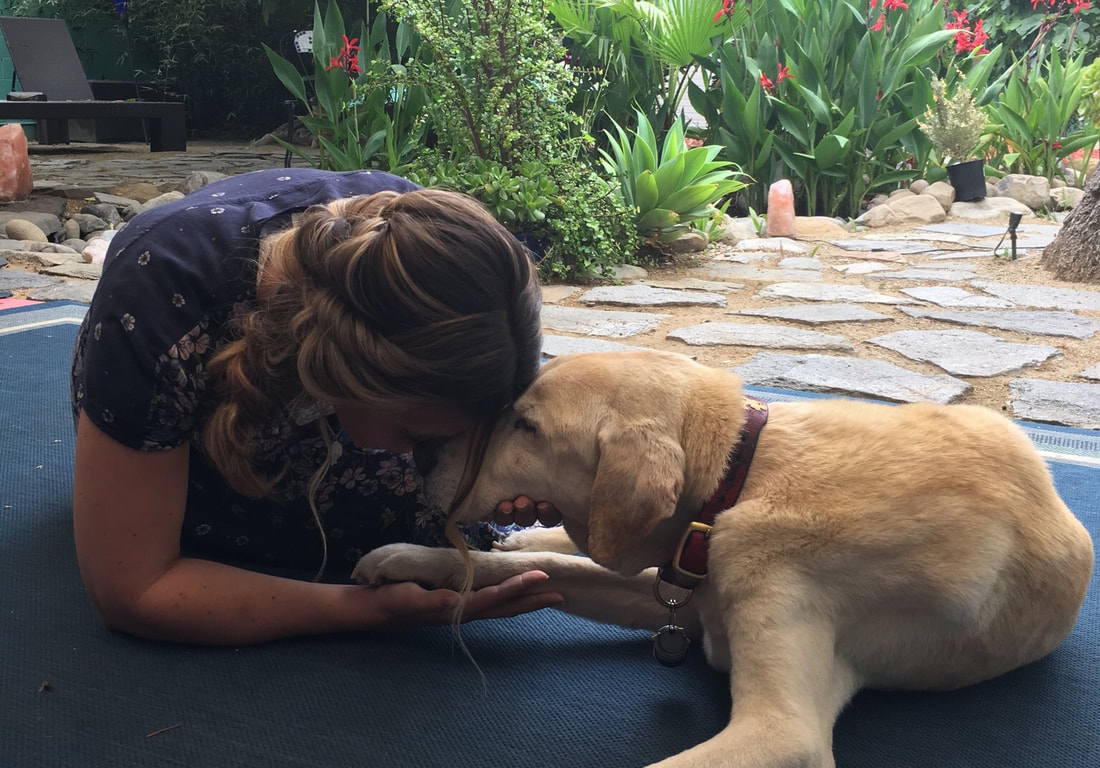


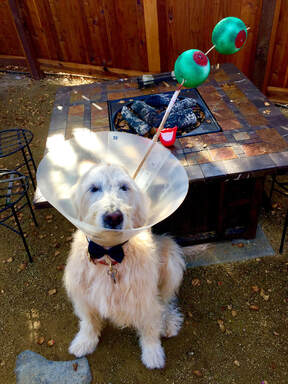

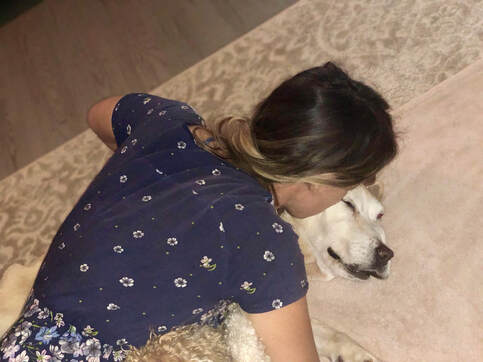



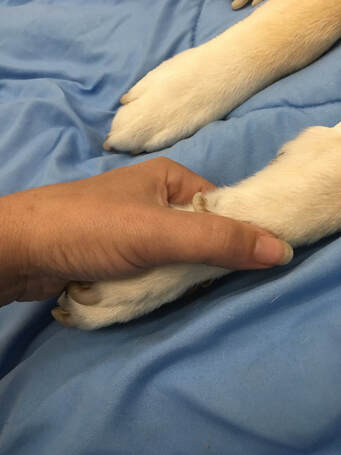
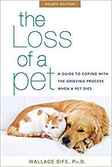
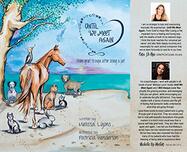
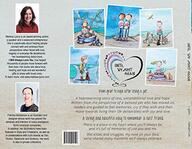

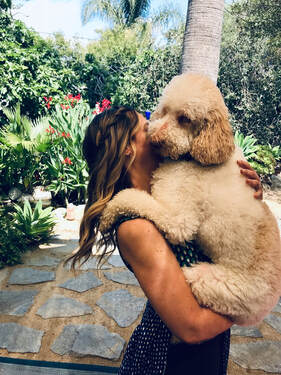


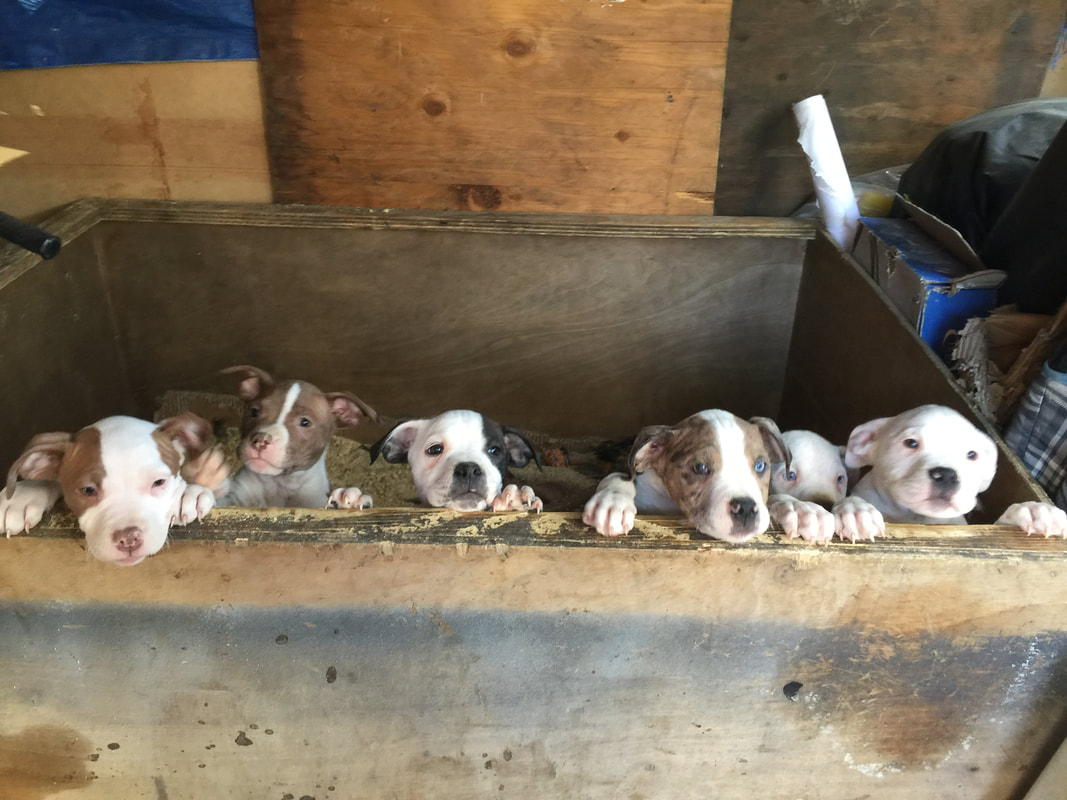
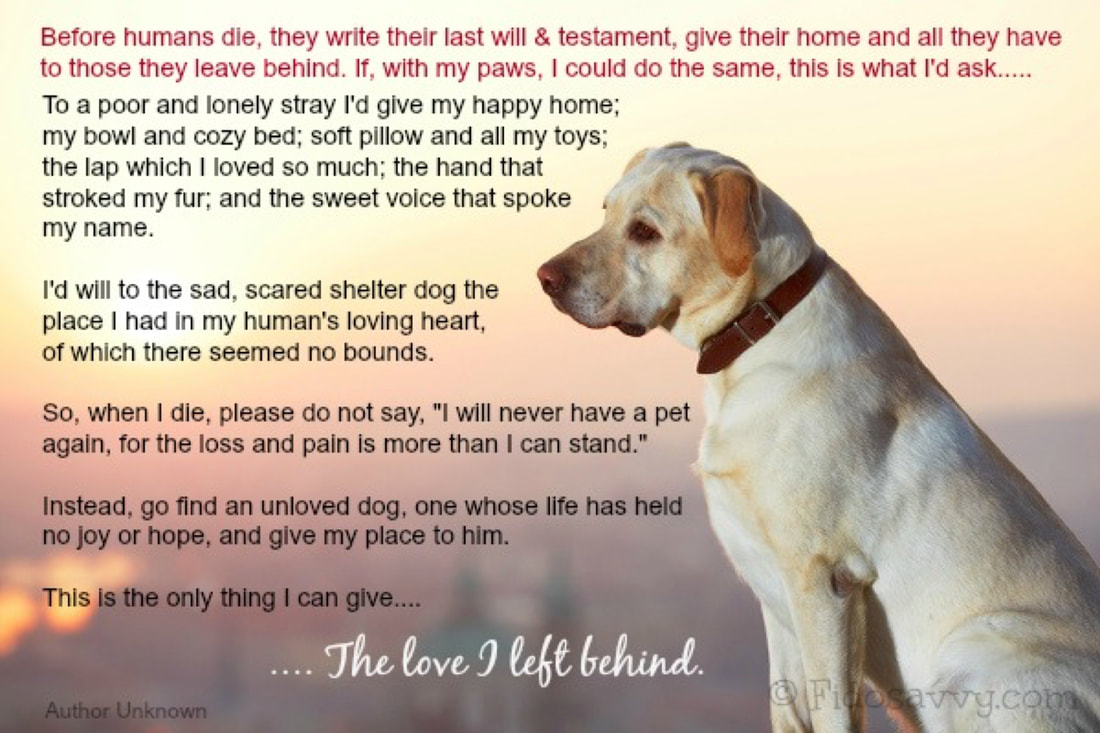

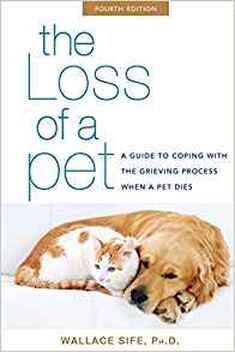
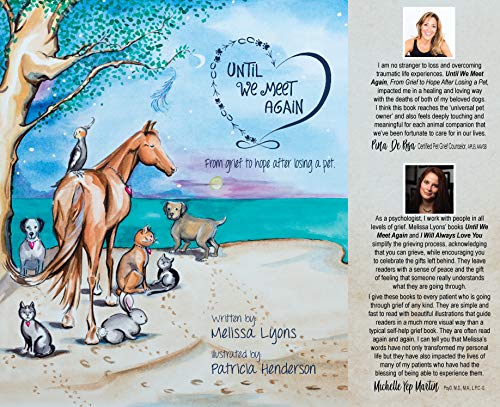
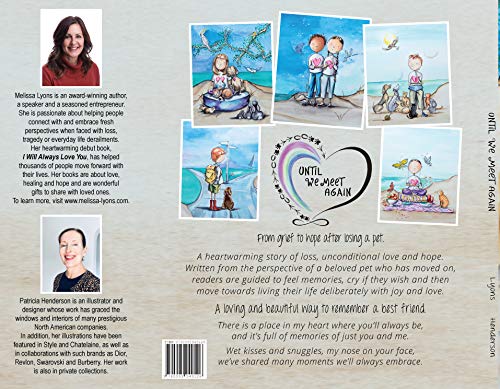
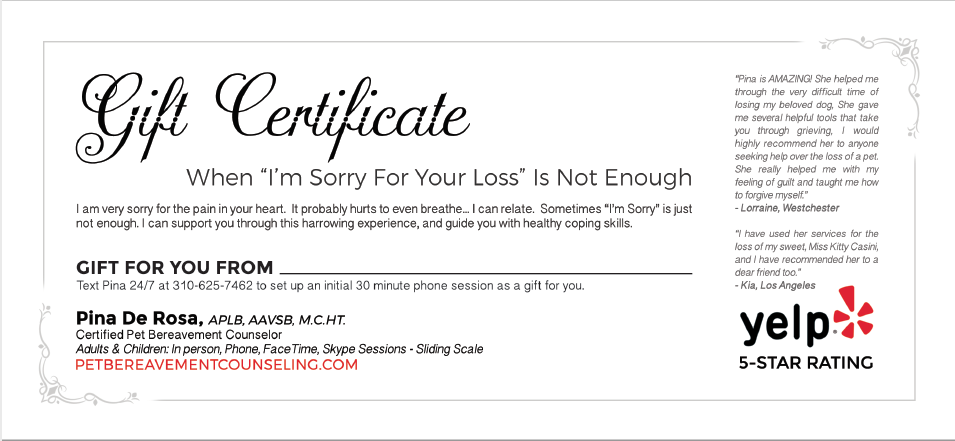


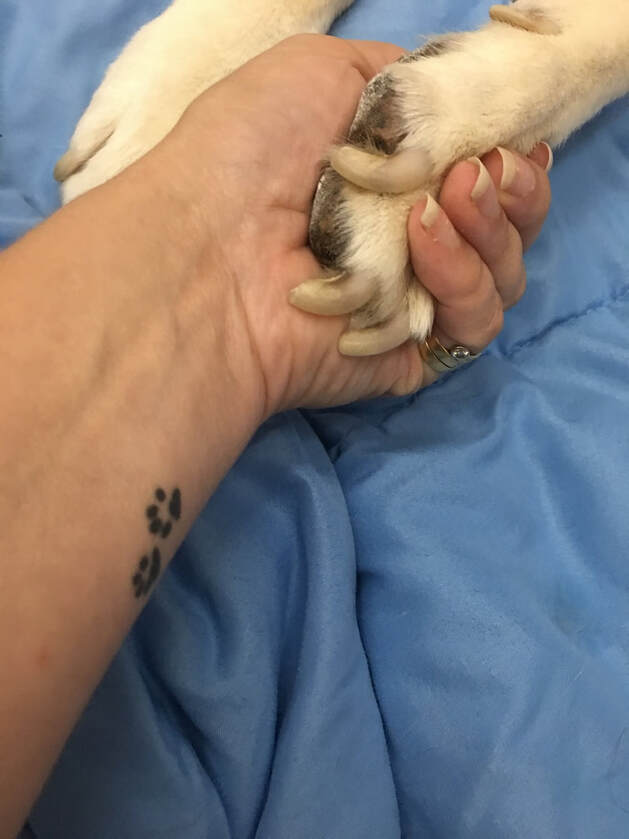
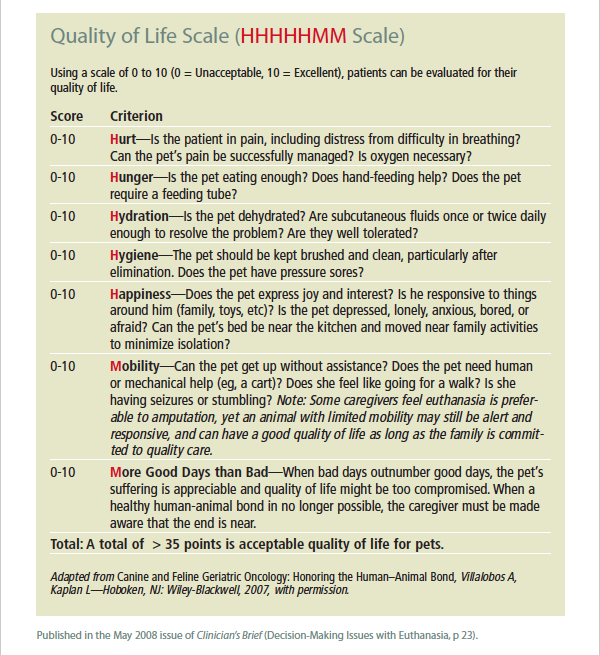

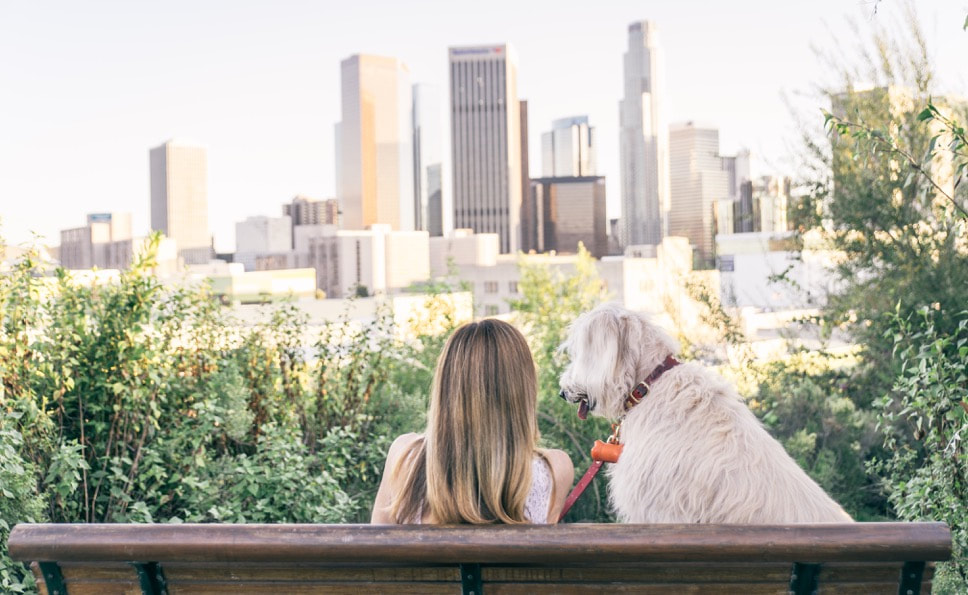
 RSS Feed
RSS Feed
